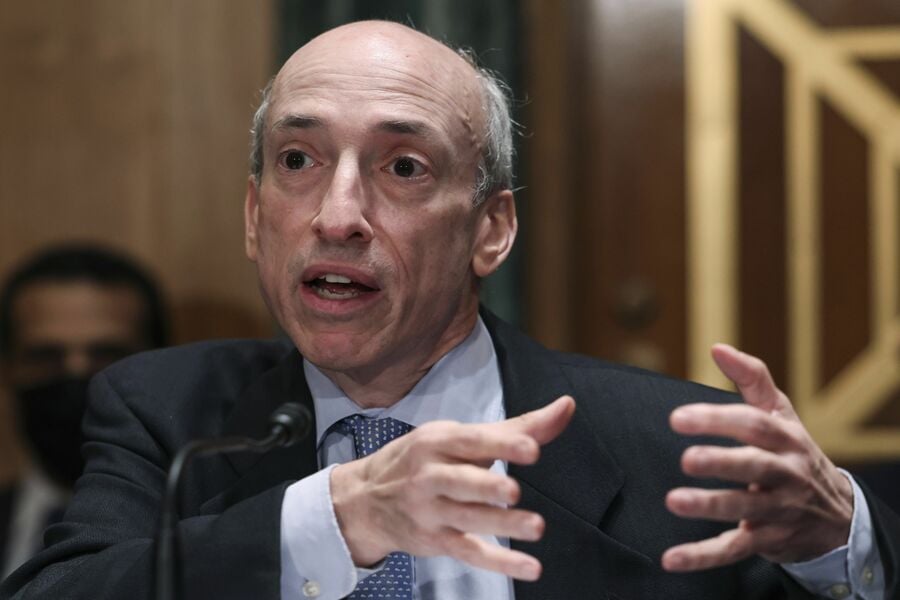

The Securities and Exchange Commission is adding 20 more officials to a team dedicated to policing crypto markets, the latest move by Wall Street’s main regulator to crack down on digital tokens that may run afoul of its rules.
The additions will bring the SEC’s Crypto Assets and Cyber Unit to 50 people, the agency said Tuesday in a statement. The focus of the expanded enforcement group will include virtual-currency offerings, decentralized finance and trading platforms, as well as stablecoins, according to the regulator.
Over the past year, the SEC has moved aggressively to expand oversight of digital-assets with Chair Gary Gensler frequently saying he considers many of them to be securities and subject to his agency’s rules. The regulator has launched probes into marketplaces offering certain types of nonfungible tokens, or NFTs, and companies behind crypto-lending products.
“By nearly doubling the size of this key unit, the SEC will be better equipped to police wrongdoing in the crypto markets while continuing to identify disclosure and controls issues with respect to cybersecurity,” Gensler said in the statement.
The SEC team, which was previously known as the Cyber Unit, has brought more than 80 enforcement actions since its inception in 2017, the agency said.

Wall Street firm partners with Dutch online broker to fuel push into EU market.

While industry statistics pointing to a succession crisis can cause alarm, advisor-owners should be free to consider a middle path between staying solo and catching the surging wave of M&A.

New joint research by T. Rowe Price, MIT, and Stanford University finds more diverse asset allocations among older participants.

With its asset pipeline bursting past $13 billion, Farther is looking to build more momentum with three new managing directors.

A Department of Labor proposal to scrap a regulatory provision under ERISA could create uncertainty for fiduciaries, the trade association argues.
Orion's Tom Wilson on delivering coordinated, high-touch service in a world where returns alone no longer set you apart.
Barely a decade old, registered index-linked annuities have quickly surged in popularity, thanks to their unique blend of protection and growth potential—an appealing option for investors looking to chart a steadier course through today's choppy market waters, says Myles Lambert, Brighthouse Financial.
